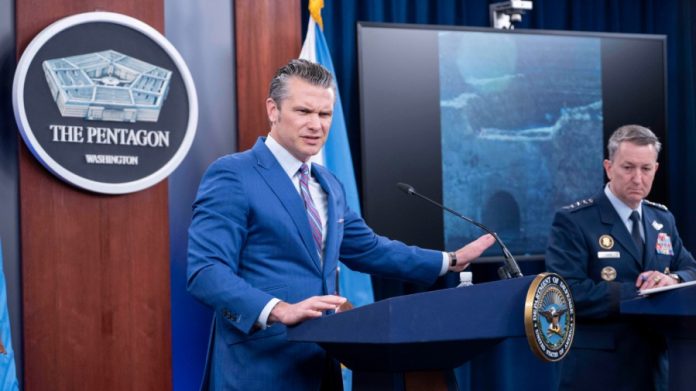
Thirty U.S. Navy Tomahawk cruise missiles and 14 30,000-pound “bunker busters” did considerable and possibly irreparable damage to their targets.
One extraordinary consequence was that, for the time being, the two belligerents, Iran and Israel, have declared a temporary cease-fire.
However, before claiming victory, consider several other realities that are important.
Despite President Trump’s initial and follow-on claims that Iran’s nuclear facilities were obliterated, insufficient bomb damage assessment cannot confirm or challenge his claim.
What the administration is assuming, with some justification, is that because all weapons performed as intended and detonated according to plan, it is reasonable to conclude the targets were eliminated.
Yet when Defense Secretary Pete Hegseth claimed that this was the “most complex and secretive military operation in history,” as ordered by Trump, one wonders whether history started on June 21.
What would Trump have said about the famous Doolittle raid over Tokyo in April 1942, the Battle of Midway two months later that changed the outcome of the war in the Pacific, the invasion of Europe on D-Day or the atomic bombings of Japan? Perhaps a little humility is in order.
Until the extent of damage can be determined to include locating where the bulk of the 600 pounds of uranium enriched to at least 60 percent resides, determining the number of surviving or hidden centrifuges and identifying any secret sites that could produce a nuclear weapon, caution is a good idea.
Further, the notion that no other country could do what the U.S. military accomplished also requires care.
After all, the Israeli military did the heavy lifting in eliminating virtually all of Iran’s air and missile defenses from radars to aircraft to missile sites. Without that preparation, the U.S. strike could not have been quite as effective.
And much of Israel’s preemptive actions occurred on the ground in Iran, much as Operation Spider Web caught a substantial part of Russia’s bomber fleet sleeping as doors opened on trucks that had been inadvertently driven by unsuspecting Russian teamsters launching the attacking drones.
Take Russia. It borders on Iran. Hence, refueling bombers was unnecessary. It is possible that with stealth, coordinated Russian air and ground forces could have destroyed those nuclear facilities.
It is technically correct that no state has the equivalent of the B-2 bomber and long-range strike made possible by air-to-air refueling. But that does not mean there were no other means to attack and destroy these targets using imagination and daring.
It was self-evident that the War Powers Act would be invoked. That law was passed in response to the Tonkin Gulf Resolution that would authorize waging the subsequent Vietnam War and was meant to limit the president in using force.
However, that act did not and could not reconcile the profound contradiction between the Constitution’s granting only Congress in Article I the power to declare war and Article II making the president commander in chief.
The key word in that act was “imminent,” meaning that the country faced immediate danger.
Clearly, in the thermonuclear age, if an enemy launched a first strike against the U.S., the president would not have any time to consult Congress. If a counterattack were ordered, that would be a declaration of war.
And if the president decided not to respond and waited for congressional approval, if the nation survived, that president would likely be impeached and convicted for dereliction of duty.
That has never applied. And presidents in using force, from the 1999 Kosovo Bombing to the Libyan intervention in 2012, have come up against claims of violating the War Powers Act. But will Congress alter the act to make it more relevant? Probably not.
What is next is the question. If peace has indeed broken out in the region, that would be a historic event. At the cost of 14 bombs and 30 cruise missiles, this would be transformational.
But history has often been unkind to those who rush to judgment. What seems too good to be true usually isn’t.
If bomb damage assessment is allowed to proceed and does its job objectively and without extreme political pressure, such as to prove Iraq had weapons of mass destruction in 2003, at least ground truth should better inform decisions and what comes next.
Harlan Ullman, Ph.D. is UPI’s Arnaud deBorchgrave Distinguished Columnist, a senior advisor at Washington, D.C.’s Atlantic Council, the chairman of two private companies and the principal author of the doctrine of shock and awe. He and David Richards are authors of a forthcoming book on preventing strategic catastrophe.

